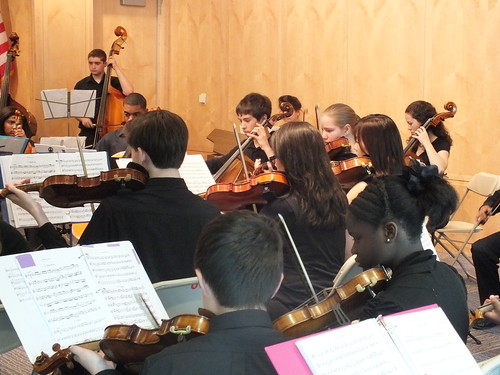Using Music to Close the Academic Gap

There was an article in the Atlantic this week about several long-term studies on how music can impact academics for students in low income schools. While there have been many studies released recently on how music may impact the brain, most of these seem to be short-term studies of small groups in which the authors infer that music is making a difference in brain function based mostly on correlation. These newer studies are long term and the groups in the studies seem well balanced. The schools participating in the studies are seeing very good early results.
Though these studies are far from over, researchers, as well as the parents and teachers of the study subjects, are already noticing a change in the kids who are studying music. Preliminary results suggest that not only does school and community-based music instruction indeed have an impact on brain functioning, but that it could possibly make a significant difference in the academic trajectory of lower-income kids.
This is great news for those kids, and it's also great news for music. These studies are showing scientifically that music is important for a well rounded education. I believe that music is important for cultural reasons — beyond helping students master other subjects, music is important in its own right. However, any study that reinforces the role of music in education is an excellent tool to help get funding and community support for maintaining excellent music programs in our schools.
You can read the article at the Atlantic.